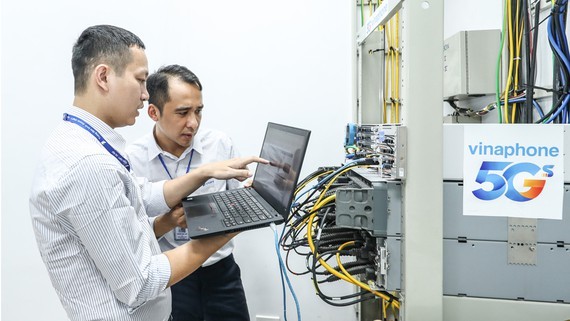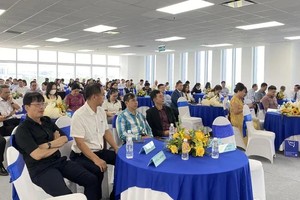
Head of the Technology Department in VNPT Group Nguyen Van Yen reported that although the income from phone calls still accounts for a half of his organization’s total revenue, last year witnessed an expected level-off. This is quite an alarming state since there would be insufficient investment in developing the new generation platform of 5G.
Facing the same situation are the two other domestic telecoms giants – Viettel and MobiFone.
Confirming this state, Deputy Director of the Vietnam Telecommunications Authority Nguyen Phong Nha shared that many telecoms carriers are facing the challenge of maintaining the income of traditional telecoms services since Over-the-Top services (OTT) are gradually replacing them.
Therefore, those carriers have to expand their services and adjust their operation models to make good use of cutting edge technologies like 5G, said Mr. Nha.
The good news is the earnings from data services have experienced impressive increases even though the mobile data fees in Vietnam are among the lowest in the world.
In order to better serve telecoms customers in the near future, the Vietnam Telecoms Authority suggests that businesses of the field upgrade their infrastructure to keep up with the trend of virtualization and hyper-convergence in ICT.
Accordingly, new-generation telecoms networks must meet requirements of services like edge computing, AI, 5G, connections between satellite networks and high-speed transmission systems.
Particularly, the 5G technology is predicted to be the basic platform to develop and integrate other platforms, applications, and services. This state-of-the-art technology is also a powerful tool to promote the digital transformation process.
The technology is expected to easily satisfy business, security, national defence goals as well as tasks for socio-economic development and disaster prevention and control.
In December 2020, VinaPhone – member of VNPT Group – was the first in Vietnam to activate the 5G technology for commercial purposes in Hanoi and Ho Chi Minh City. This technology is 10 times as fast as its 4G counterpart and the nearly-zero latency.
This is very promising, seeing that 5G can boost the implementation of advanced technologies like AI, IoT, automation in establishing smart cities and improving the work performance in businesses.
























